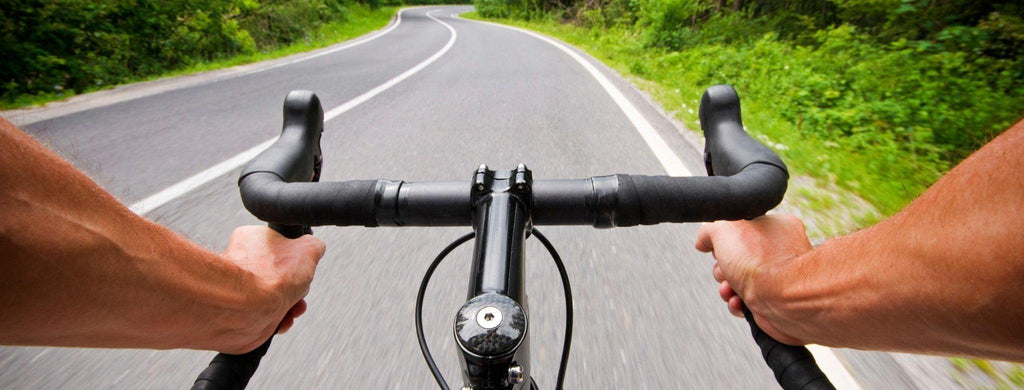There's no better way to appreciate one's mental strength and resilience than climbing Mountains during a gruelling bike ride. When your body feels the severity of fatigue and muscle pain, its mental determination that gets you to the top.
This example of mental persistence is making head waves for employees in leadership roles that, especially in the current Covid-19 climate, experience day to day levels of extreme stress, anxiety and/or depression.

Satisfaction with one's life can be a challenge, especially if your job features on the top 10 list of most stressful jobs (1). Stats highlight that, while particular events in life make us vulnerable to mental illness, regardless of job or social status anyone can enter periods or long stretches of mental disturbance. The support service for mental wellbeing Beyond Blue, states, "Anxiety, depression and suicide can affect any of us at any time" (2)
When it comes to building mental strategies to cope with distress, outdoor activities like Cycling can bring huge advantages. Even with all the perceived hindrances (cost, time and risk), the social, physical and mental benefits from riding a bike far outweigh the inactive alternative.
You may already support the theory that exercise promotes a healthy mind. You're right. Those same thoughts are backed by medical research.
16 weeks of regular exercise has been found to be equally effective as antidepressant medication in the treatment of mild to moderate depression.(3) Black Dog institute
Cycling as exercise is also often considered a form of escape. While it can clear the head of worries, cycling builds the capacity to better deal with situations that exist off the bike.
"I'm more likely now to strike up a conversation. I don't normally make friends, but I feel I'm more open to socialising." Rider, Patrick Whittle (4)
Exercise may improve physical health, but the mental advantage comes from more than cardiovascular activity. As Patrick highlights, cycling can even help overcome perceived social inadequacies.
In fact exercise on its own appears but a part of the solution to fighting mental unrest. Resilience of mind is better built with a combination of physical exertion, social interaction, goal creation and continual gained sense of accomplishment.
These four features are additional, but often unreported, benefits to cycling. What's more, they especially feed many riders passion to cycle and participate.

What can we do with this information?
If you're thinking of cycling to help clear and focus, I wholeheartedly support the decision. If you know someone who experiences feelings of mental distress, including loneliness, anxiety, sadness, apathy, or the physical symptoms (2), then cycling may be a way to help.
Why is it important?
The number of men who die by suicide in Australia every year is nearly double the national road toll. (5)
I don't think we need a moment to let that sink in ... that stat is shocking in its own right.
Of course, there are a multitude of reasons someone may reach a level of such desperation that living seems no longer an option. No single answer will be appropriate. But I do know riders who use cycling and its interactive nature as their savour. The possibility that it can help others is important enough to spread the word.

If there's a friend you'd like to start riding, there's a few pointers I've learnt to engage a potential rider.
Firstly, you cannot force someone to ride a bike - especially a road bike.
Secondly, when starting - the physical activity of cycling and the challenges it presents are one and the same regardless of whether you ride a borrowed step-thru, a beaten MTB, an E-Bike, or a road bike. Don't be precious about the type of bike ridden. Comfort is key.
Having said this, the transition from a commuter bike to more sport related styled bikes (road, gravel, mtb) will allow greater participation options within social events as well as potential adventure with travel. If there's a tendency for anyone to want a sport style bike, this point should really be encouraged.
If someone however is unsure why or how to start using a sports style bike there are four buds of knowledge to help potential riders on their way and, most importantly, continue riding into the future.
- A pre-established sense of confidence makes the transition to road riding less fearful. Riding a commuter style bike can be less threatening and makes the journey to other bikes more enjoyable. Starting in a park, with a supportive friend, is a successful way to begin.
- A sense of belonging to a group plays a significant part in motivating the want to ride. There are many groups out there, and beginning with people who make you feel safe can be critical to your continuing.
- Long term participation often depends on involvement within a group. There are more supportive memberships that provide social interaction and goal motivations in, lets call them, sport-style bikes (such as road bikes, gravel, MTB), than commuting style bikes. The transition to these bikes can provide very positive relationships and new found friendships.
- Don't underestimate achievements - Making and accomplishing goals play a huge part of every cyclists enjoyment. This is irrespective of whether you stood on a podium, or can celebrate how quick you climbed a hill. Long term goals may also be an event (virtual or actual), an adventure, travel, inclusion in a particular group, racing, learning a skill or increasing your power or speed.
It is this network of benefits that is key to enhancing not only performance but to fuel positive experience and build long term mental resilience.
Lastly, the content discussed here is in no way intended as a substitute for professional advice, diagnosis, or treatment. We will always recommend seeking advice of a mental health professional, or other qualified health provider, regarding any condition noted here or otherwise.
References
- https://www.businessnewsdaily.com/1875-stressful-careers.html
- https://www.beyondblue.org.au/who-does-it-affect
- https://www.blackdoginstitute.org.au/wp-content/uploads/2020/04/5-exercise_depression.pdf
- https://www.abc.net.au/life/why-cycling-could-be-great-for-your-health/11234336
- https://www.mayoclinic.org/diseases-conditions/mental-illness/symptoms-causes/syc-20374968





